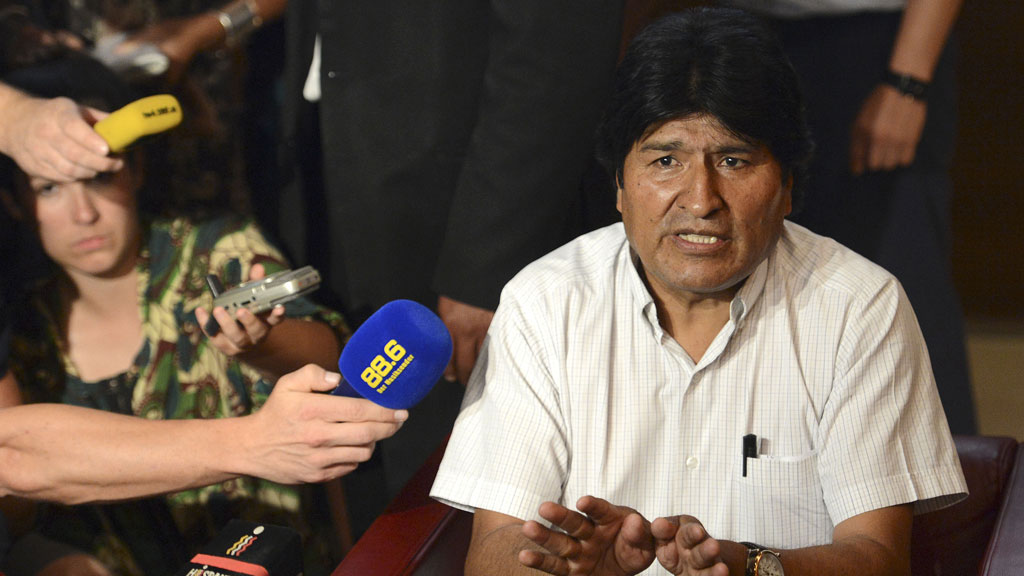South American nations discuss Morales ‘virtual kidnapping’
Latin American leaders slam European governments for diverting Bolivian President Evo Morales’ plane on rumours it was carrying wanted former US spy Edward Snowden.

Regional leaders, particularly from the left, are rallying behind President Morales, Bolivia’s first indigenous president and a former union leader of the country’s coca farmers.
“(These are) vestiges of a colonialism that we thought were long over. We believe this constitutes not only the humiliation of a sister nation but of all South America,” Argentine President Cristina Kirchner said in a speech in Buenos Aires.
Heads of state in the 12-nation South American bloc Unasur denounced the “unfriendly and unjustifiable acts.”
The grouping issued a statement late last night saying the presidents of Ecuador, Bolivia, Venezuela, Argentina, Uruguay and Surinam had agreed to attend a summit in Cochabamba, Bolivia, on Thursday.
‘Disgraceful and discriminatory’
“Latin America demands an explanation,” tweeted Ecuadorean leader Rafael Correa. “If what happened to Evo does not merit a Unasur summit, I don’t know what does.”
Dilma Rousseff, president of regional economic powerhouse Brazil, issued a statement repudiating the European countries that denied President Morales access to their airspace based on what she called the “fanciful” notion that Snowden might be on board.
The Chilean Foreign Ministry issued a statement saying it “lamented” what happened to President Morales and that more clarity was needed on the facts.
Much more blunt was the statement from Mexico’s Congress condemning what it called the “disgraceful and discriminatory” treatment President Morales had received in Europe.

‘Administrative mishap’
A spokesman at France’s Foreign Ministry blamed the flap on “an administrative mishap,” saying France never intended to ban President Morales from its airspace and that there were delays in getting confirmation that the plane had fly-over permits.
International agreements allow civilian airplanes to overfly countries without obtaining permission ahead of every flight. But state aircraft including Air Force One, the plane that carries the US president, must obtain clearance before they cross into foreign territory.
Government aircraft, whether carrying diplomats or missiles, always require approval before they can enter foreign airspace, legal experts said.
“Every state on the basis of state sovereignty has the right to deny overflight to state aircraft,” said John Mulligan, a research fellow at the International Aviation Law Institute at DePaul University in Chicago.
Bolivian officials were quick on Tuesday to accuse the United States of strong-arming the Europeans into denying access to their air space in an “act of intimidation” against President Morales for suggesting that while attending an energy conference in Moscow he would consider granting asylum to Snowden if requested.
President Morales said earlier this week no request had been made.
Russia have also criticised France, Spain and Portugal for delaying the Bolivian president’s flight home from Moscow.
“Russia calls on the international community to comply strictly with international legal principles,” the Russian Foreign Ministry has said.
The White House declined to comment on the assertion that it was behind the plane scandal.